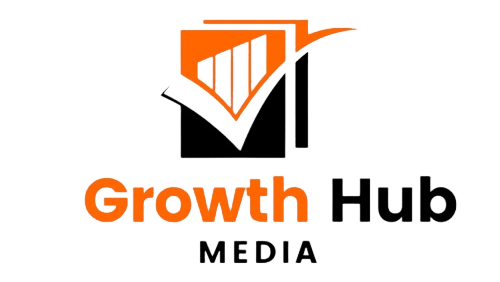Every business that uses the internet needs to have a website security template. Even small organizations are prone to suffer huge financial losses due to poor website security. If you fall prey to hackers and the organization’s information is leaked to the public, you stand to lose your reputation along with millions of dollars. You may find yourself spending hundreds of thousands of dollars to rectify the damage done.
Losing your brand reputation can mean losing revenue. In a recent study it was suggested that every dollar invested into avoiding website data breaches emerges as a 10-fold return on investment. This suggests the importance of website security update.

At Growth Hub Media, we help businesses grow their online presence and traffic and give them the ability to expand to new markets online and sell to new customers possible. In this article, we will analyze how digital marketing is in line with advancing website and SEO security.
Why Is Website Security Important For Digital Marketing?
Every business using the internet needs a website security strategy. Almost every site on the internet is susceptible to hackers and inadequate website security can result in tremendous financial loses for an organization. Business hackers will not only destroy a company’s reputation but will also jeopardise the big development on a global scale.
There are many ways to prevent being a victim of online scams. Companies need to spend immense proportions of their budget to recover what has been lost due to their unsecured. Researchers have found that $1 spent on avoiding breaches avoids $10 in recouping scrubbed resources.
Online business credibility and trust can be enhanced through the use of very powerful advertisement and marketing policies and strategies.
Recommended Practices That Increase Website Security
- HTTPS Migration
Google uses HTTPS as a ranking factor. If you are still using HTTP, you should upgrade. You can purchase an SSL certificate to disable the HTTP connection on your server. This links your server to your users in a safe manner. Completing this step will not only secure your site but increase your SEO ranking as well. It’s integral for any site security to install an SSL certificate.
- Update Your CMS, Plugins, and Themes Regularly
Failure to update important software is one of the biggest risks a company can take in today’s world. Updating your content management system (CMS), and plugins, and installing new themes ensures that you don’t have exposed security gaps. If you’re a WordPress user, this is extremely important. Attacks because of outdated plugins is very common.
Pro Tip: Active and supported trusted plugins are the only ones you should keep.
- Add a Web Application Firewall (WAF)
A WAF stops malicious traffic from reaching your servers, ensuring that your website remains secure. Stopping SQL injection, cross-site scripting (XSS), and even DDoS attacks has become easier due to firewall technology. You will notice that a lot of hosting service providers add WAFs to their offers.
- Implement Password Security Along With Two Factor Authentication
Encourage all users and admins to use unique passwords that require simple guessing as well as strong two-factor authentication. 2FA can be enabled with Google Authenticator or Authy that adds additional protective layers unlike ever before.
- Rotational Backup for Your Website
Regularly scheduled backups, aka periodic snapshots, allow the initiation and acceleration of restoration processes in response to unauthorized breaches or sudden crashes enabling top level security. In addition to local solutions, use cloud-based backups to defy protection limits.
Website Security Improves SEO & Marketing Strategies
- UX Rating
Improved User Security as well Increases Retention Rates – Benefits the Organization by being a search engine ranking and guaranteed positive engagement factor. Keeping the site safe and user-friendly along with solo browsing hiked signups make positive signals towards engagement.
- Extended Average Session Duration
Browse security not updated and flash warning “Not Secure” shows instantly frightens users resulting in slower site engagement improving Overall SEO results and traffic density. Enhanced report card standings result in unbiased ranks and site reputation. Keeping your site securely enables user retention boosting steady ranking.
- Increased User Led Expectation
Improvement for the extended factors boost greatly improving domain authority since trusted websites guarantee leads to expectations. Display shields to claim trust badges are crucial with all payment gateways further slashing expectations enhancing user control.
- Advanced Reputation Management
Your brand reputation may suffer irrevocably from a hacked website. Especially on social media, information spreads rapidly. Digital marketing strategies place great importance on brand image, and maintaining a secure website enhances that image.
Digital Marketing Recommendations for a Secure Website
- Promote Security as a Feature of Product or Service Pages
Let users know that their data will be kept safe. On landing and product pages, highlight features such as ssl encryption, secure payments, or compliance with GDPR.
- Develop Blog Articles Focused on Security
Trust can be increased by educational articles like “How We Protect Your Data” or “5 Ways Our Site Protects Your Privacy.” These articles can also help with SEO because they can be written using relevant keywords.
- Combine Security Trust Seals with Beacons
Security providers’ trust seals (Norton, McAfee, TrustLock etc.) can enhance the trustworthiness of a website. Use them alongside real customer testimonies to enhance trustworthiness further.
- Track Site Health on Google Search Console
Monitor performance, indexing challenges, as well as security challenges on Google Search Console. Acting immediately on flagged issues helps maintain site health and rank stability.
Conclusions
Cybersecurity and website design require extra attention today working together in harmony. Protecting your website is an investment that defends you from cyber dangers while bolstering your market position, improving trust, and optimizing your marketing goals.



